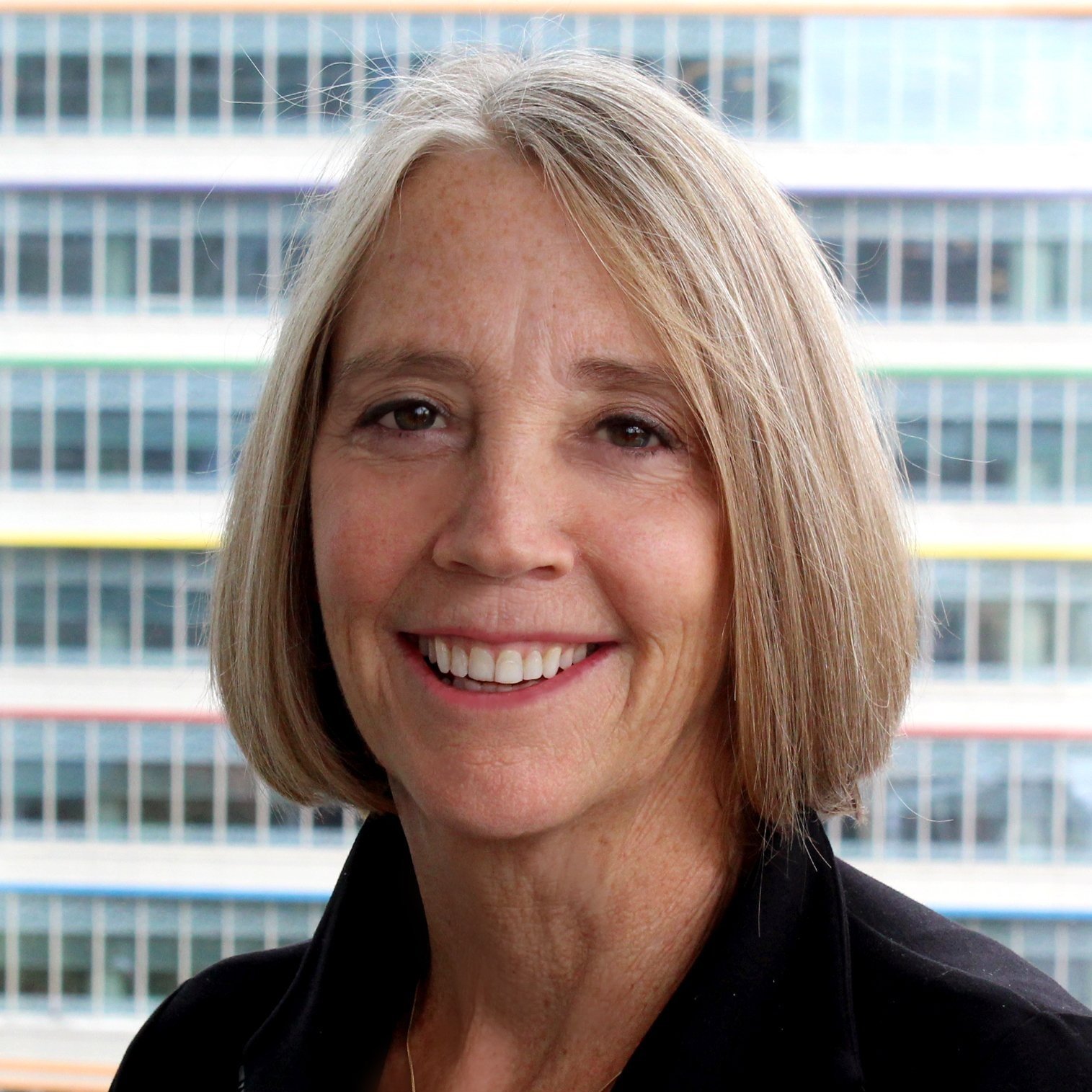Announcing Our 2023 Recipients!
The Hereditary Disease Foundation is thrilled to announce the recipients of our inaugural Transformative Research Awards. Congratulations to the two all-star collaborative teams, one led by Dr. Beverly Davidson of the Children’s Hospital of Philadelphia and University of Pennsylvania, and the other led by Dr. Ricardo Mouro Pinto of Massachusetts General Hospital and Harvard Medical School, who will each receive funding of $1 million over the next two years to advance their work toward developing treatments for Huntington’s disease.
Dr. Davidson’s and Dr. Mouro Pinto’s teams each use cutting-edge methods but take different approaches to advance Huntington’s disease research and, if successful, could lead to truly transformative therapies for Huntington’s disease.
What are the Transformative Research Awards?
The Transformative Research Awards were made possible through a partnership between the Hereditary Disease Foundation and a generous group of anonymous donors. This new award is designed to move the most innovative work in Huntington’s disease from concept to practice by funding collaborative research teams who are focused on creating new ways to move toward a disease-modifying treatment and provide transformational new insights to the HD research field. The Transformative Research Awards are the largest grants ever awarded by the Hereditary Disease Foundation.
Project Title: Translational studies on PIAS1 and MSH3 knockdown for Huntington’s disease
About the Team
Beverly L. Davidson, PhD, Principal Investigator
Katherine A. High Chair in Cell and Gene Therapy
Director, Raymond G. Perelman Center for Cellular and Molecular Therapeutics
Chief Scientific Strategy Officer, Children’s Hospital of Philadelphia
Professor, Pathology and Laboratory Medicine, University of Pennsylvania
American Academy of Arts Sciences
National Academy of Medicine
Leslie M. Thompson, PhD, Co-Investigator
Donald Bren and Chancellor’s Professor
Department of Psychiatry and Human Behavior
Department of Neurobiology and Behavior
University of California, Irvine
Jang-Ho John Cha, MD, PhD, Co-Investigator
Chief Scientific Officer, Latus Bio, Inc.
Dr. Davidson has been working on Huntington's disease for decades, most recently specializing in developing and improving viral delivery strategies for HD therapeutics. She also has experience moving promising drug targets to primate models. Dr. Thompson is a renowned leader in stem cell research and has extensive experience working with various models of HD mice. Dr. Cha has worked in the pharmaceutical sector for decades and is well-versed in taking drugs from conception to clinic. Both Drs. Thompson and Cha were key members of the research team that traveled to Venezuela annually on a quest to find the gene that causes HD. This all-star team capitalizes on their own specific skill sets while collaborating to move novel approaches toward the clinic.
About the Project
The team is using an adeno-associated virus (AAV) that can be injected into the brain at very small volumes and widely infect cells of the brain. This improves on current approaches that require multiple injections at larger volumes that also infect fewer cells. The team is targeting 2 proteins: MSH3 and PIAS1. MSH3 is involved in a biological phenomenon called “somatic instability,” which is the molecular stutter in the CAG repeat that causes HD to expand over time in vulnerable tissues, particularly the brain. Understanding somatic instability in Huntington’s disease has become one of the hottest topics this decade, as it’s thought to drive disease onset and progression. If it can be controlled, it’s very possible that HD could be halted. PIAS1 is involved in the degradation of the protein that causes HD. Dr. Thompson’s lab was the first to identify PIAS1 as playing a role in HD and has since collaborated with Dr. Davidson on understanding the molecular role of PIAS1 in HD biology. They have shown that by changing levels of PIAS1, mouse models of HD significantly improve.
This project seeks to inject the AAV tools that they’ve created into the brains of primates. These AAVs will change levels of MSH3 and PIAS1, allowing the research team to ask if there is therapeutic benefit in the HD model most similar to humans – primates. They will also change levels of MSH3 and PIAS1 at the same time using their AAV tool in stem cell models and mice. This will allow them to understand the synergistic effect of targeting both proteins at the same time. If successful, this approach would be a “one-and-done” treatment for HD and will directly lead to clinical trials.
Hear about the project from the TRA team themselves - Beverly Davison, Leslie Thompson, and Jang-Ho Cha - during our April 2024 Research Spotlight Webinar, “Developing Transformative Tools: Gene Therapy for Huntington's Disease.”
Project Title: Therapeutic targeting of somatic CAG expansions with precise CRISPR base editing
About the Team
Ricardo Mouro Pinto, PhD, Principal Investigator
Instructor in Neurology, Harvard Medical School
Massachusetts General Hospital
James F. Gusella, PhD, Co-Investigator
Bullard Professor of Neurogenetics, Department of Genetics
Harvard Medical School
Massachusetts General Hospital
Benjamin Peter Kleinstiver, PhD, Co-Investigator
Assistant Professor, Harvard Medical School
Assistant Investigator, Massachusetts General Hospital
David R. Liu, PhD, Co-Investigator
Thomas Dudley Cabot Professor of the Natural Sciences, Harvard University
Richard Merkin Professor and Director of the Merkin Institute of Transformative Technologies in Healthcare, Broad Institute of Harvard and MIT
Core Institute Member & Vice-Chair of the Faculty, Broad Institute of Harvard and MIT
Benjamin E. Deverman, PhD, Collaborator
Institute Scientist and Senior Director, Vector Engineering
Stanley Center for Psychiatric Research, Broad Institute of Harvard and MIT
Joseph Nabhan, PhD, Collaborator
Chief Scientific Officer, Vesigen Therapeutics
Cathleen Lutz, PhD, MBA, Collaborator
Vice President, The Jackson Laboratory Rare Disease Translational Center
Vanessa C. Wheeler, PhD, Collaborator
Associate Professor of Neurology, Harvard Medical School
Research Geneticist, Massachusetts General Hospital
Dr. Mouro Pinto has been working on HD since his postdoctoral studies in 2015. Drs. Wheeler and Mouro Pinto helped define somatic instability in HD and identified genes targeted in this project as being involved in this process. Dr. Mouro Pinto has put together a team that will be a tour de force. Dr. Gusella has been working on HD since the 1970s and was a key member of the team that identified the gene that causes HD. Dr. Kleinstiver is a leader in genome editing. Dr. Liu invented the modified CRISPR technology, called base editing, used in this proposal. Dr. Deverman is a world expert in virus development. Dr. Nabhan is the Chief Scientific Officer of Vesigen Therapeutics, a company that specializes in packaging therapeutics so they can be delivered into the brain. Dr. Lutz is the Vice President of the Rare Disease Translational Center at the Jackson Laboratory, the world leader in developing and breeding mouse models. Dr. Wheeler is a long-time mentor of Dr. Mouro Pinto. She has dedicated her career to understanding how somatic instability affects onset and progression of HD. Each team member specializes in an area that will be used throughout this project.
About the Project
The overall goal of this proposal is to permanently halt somatic instability with a one-and-done (gene editing) approach to the brains of mice that model Huntington’s disease. The team will target genes they have identified, MLH3, MSH3, and PMS1, with known roles in somatic instability in HD. The team has strong preliminary data to support the targeting of these specific genes. Previous work by members of the team has demonstrated editing these genes won’t have negative effects, such as causing cancer. They will target these genes using AAVs that contain molecular machinery allowing for CRISPR editing of each of the genes. After mice are treated, they will be analyzed in depth to study the effects of the gene editing. Additionally, experiments will be done with cells from HD patients to determine the effects of this technology in human cells.
This project develops genome editing therapeutics that target the cause of the CAG repeat expansion in Huntington’s disease. If successful, this work will lead to pre-clinical studies testing the effect of altering MLH3, MSH3, and PMS1 on behavior of mice that model HD.
Hear about the project from Ricardo Mouro Pinto himself during our February 2024 Research Spotlight Webinar: “Using CRISPR for Huntington's Disease Drug Development.”












